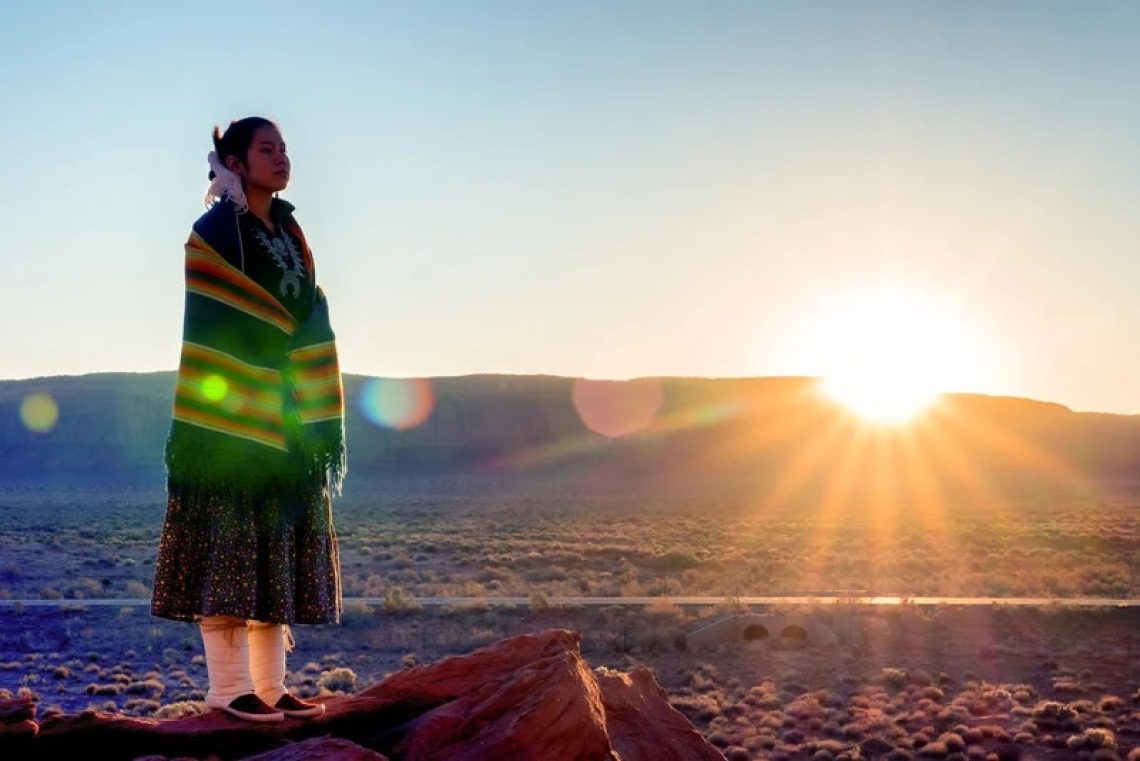Overview
The WEST Environmental Justice Center Community Champions program will build off of local knowledge and community expertise. The program will provide capacity building, leadership training, peer learning and support through a cohort approach tailored to participants’ interests with a focus on shared learning. Cohort members will be drawn from American Samoa, Arizona, California, the Commonwealth of the Northern Mariana Islands, Guam, Hawai'i, and Nevada, including Native American Tribes and Indigenous communities in these areas. Este programa sólo se realizará en inglés.
Ideal Cohort Members Will:
- Be able to clearly define and describe their proximity to environmental justice issues
- Be able to clearly articulate their community leadership experience and demonstrate their influence among community circles
- Demonstrate a willingness to address challenges through solutions
- Be open to understanding complex histories of various communities and understand effects on current issues (willingness to unlearn and relearn)
- Embrace intergenerational representation, identities, perspectives, and relationships in other cohort members
Cohort members will be provided the tools to:

LEAD
on environmental and energy justice challenges, and environmental movements

ADVOCATE
and learn steps to develop policy for their communities

DEVELOP
technical skills to address environmental justice issues in their communities

By including these diverse training topics, our Community Champions will have opportunities to build learning communities with higher potential to work collaboratively towards solutions with a range of groups to address environmental, energy, and climate injustices.

Examples of learning topics or subject areas may include:
- Policy development
- Technical skills (e.g., environmental science)
- Public speaking
- Networking
- Professional communication
- Collaboration
- Leadership skills
- Negotiating skills
- Mentoring
- Community advocacy
What to Expect
Eligibility Requirements
Curriculum
|
Month |
Topic |
Speaker(s) |
|---|---|---|
|
August-October, 2024 |
Applications Open |
N/A |
|
October, 2024 |
Review and Selection |
N/A |
|
November, 2024 |
Virtual Kick Off and Introduction to Environmental Justice/Climate Change |
Daniel Sestiaga, Dr. Paloma Beamer, Dr. Mona Arora |
|
December, 2024 |
Environmental Movements and Community Organizing |
TBD |
|
January, 2025 |
Environmental Policy Advocacy and Legal Process |
Maia Ingram |
|
February, 2025 |
TBD |
TBD |
|
March, 2025 |
Environmental Health and Justice |
Dr. Paloma Beamer, Dr. Karletta Chief |
|
April, 2025 |
Environmental Communication and Media Advocacy |
Dr. Nathan Lothrop |
|
May, 2025 |
Finding and Responsibly Using Environmental Data and Data Sovereignty |
Dr. Joe Hoover, Dr. Stephanie Russo Carroll |
|
June, 2025 |
Sustainable Development and Environmental Justice |
TBD |
|
July, 2025 |
Leadership |
TBD |
|
August, 2025 |
TBD |
TBD |
|
September, 2025 |
Closing Session and Wrap Up |
Daniel Sestiaga, Dr. Paloma Beamer |
Application Process
Step 1:
Determine your eligibility
Click here to view a PDF version of the application before beginning yours.
Step 3:
Application Review
- A selection committee will review your application and determine cohort members for the upcoming program by October 21st, 2024.
Step 4:
Notification of Selection
- You will receive a notification via email from the WEST Environmental Justice Center (WESTEJ-Center@arizona.edu) about selection into the program by October 21st, 2024 and must accept within two weeks from notification. Selected applicants will receive further information to establish payment arrangements, the curriculum, and virtual kickoff information.
July - August
Applications Open
Speakers: N/A
Date TBD
September
Review and Selection
Speakers: N/A
Date TBD
October
Virtual Kick Off and Introduction to Environmental Justice/Climate Change
Speakers: Danny Sestiaga, Dr. Paloma Beamer, Dr. Mona Arora
Date TBD
November
Environmental Movements and Community Organizing
Speakers: TBD
Date TBD
December
Environmental Policy Advocacy and Legal Process
Speakers: Maia Ingram
Date TBD
January
TBD
Speakers: TBD
Date TBD
February
Environmental Health and Justice
Dr. Paloma Beamer, Dr. Karletta Chief
Date TBD
March
Environmental Communication and Media Advocacy
Dr. Nathan Lothrop
Date TBD
April
Finding and Responsibly Using Environmental Data and Data Sovereignty
Dr. Joe Hoover, Dr. Stephanie Russo Carroll
Date TBD
May
Sustainable Development and Environmental Justice
Speakers: TBD
Date TBD
June
Leadership
Speakers: TBD
Date TBD
July
TBD
Speakers: TBD
Date TBD
August
Closing Session and Wrap Up
Speakers: Danny Sestiaga, Dr. Paloma Beamer
Date TBD
Get to know our Community Champions
Meet our 2025 Community Champions! These passionate individuals represent their communities across EPA Region 9, which includes American Samoa, Arizona, California, Commonwealth of the Northern Mariana Islands, Guam, Hawai'i and Nevada. This group is committed to being part of an ongoing effort to mobilize local communities and address environmental health issues in their region.
Frequently Asked Questions
This program is built off of the strength of our cohort members. We encourage all that are eligible to apply regardless of level of experience in environmental justice. This cohort will be composed of individuals from all walks of life, meaning, it will be diverse and be representative of the various communities from across our region. If you are not sure, you are probably the person that we are looking for. Environmental justice issues may impact everyone. You more than likely have something to add from your experience, your knowledge, and the community you represent.
October 4th, 2024
- Must be at least 18 years of age
- Must be US citizens, US nationals, or foreign nationals with a visa permitting permanent residence in the US
- Live in American Samoa, Arizona, California, the Commonwealth of the Northern Mariana Islands, Guam, Hawai'i, and Nevada, including Native American Tribes and Indigenous communities in these areas
- Be able to commit at least 4 hours a month for 12 months
Decisions will be made in October of 2024.
Yes, you will be compensated $25/hour for 4 hours/month for 12 months. Total: $1,200
- Training and tools to lead on environmental, climate, and energy justice challenges
- A cohort of other professionals to work and grow with beyond the program
- $1,200 stipend
At the moment this program is only available in English.
Participants should plan to set aside a total of four hours per month. This will include a two-hour virtual session hosted by the Center, a one-hour meet up with your accountability group, and a one-hour to complete learning modules. Depending on the topic and plan for that month, the timing of these specific activities may vary.
As part of the virtual kick-off, you will help us determine who and what topics will be developed in the overall programming. We have a list of experts, community leaders, and a leadership curriculum that will guide the overall program.
An accountability group will allow you to develop your own network and establish a group of peers within our larger group of cohort members. In your own meet up time, you will be able to delve further into larger topics, learn from each other to understand what is important to you and your respective communities.
Your accountability groups will be chosen based on your application. We have a unique system to group you. You will not be choosing your group members.
Curriculum
Month 1:
Introduction to Environmental Justice
- Overview of environmental justice principles
- Historical context and current challenges
- Case studies of successful environmental justice movements
Month 2:
Energy Systems and Environmental Impact
- Understanding energy sources and their environmental implications
- Exploring renewable energy options
- Analyzing the environmental justice implications of energy policies
Month 3:
Environmental Movements and Community Organizing
- Studying past environmental movements and their impact
- Learning community organizing techniques
- Identifying key stakeholders and building coalitions
Month 4:
Policy Advocacy and Development
- Basics of policy advocacy
- Strategies for effective advocacy campaigns
- Developing policy proposals for environmental justice issues
Month 5:
Legal Frameworks and Environmental Justice
- Overview of relevant environmental laws and regulations
- Understanding how legal frameworks intersect with environmental justice
- Identifying legal tools for addressing environmental injustices
Month 6:
Data Analysis and Environmental Justice
- Introduction to data collection and analysis techniques
- Using data to identify environmental justice issues in communities
- Hands-on exercises in data interpretation
Month 7:
Environmental Health and Justice
- Exploring the connections between environmental quality and public health
- Identifying environmental health disparities
- Strategies for promoting health equity in environmental policies
Month 8:
Environmental Communication and Media Advocacy
- Effective communication strategies for environmental justice issues
- Working with media outlets to raise awareness
- Crafting compelling narratives for advocacy purposes
Month 9:
Change and Environmental Justice
- Understanding the disproportionate impacts of climate change on marginalized communities
- Strategies for climate resilience and adaptation
- Advocating for equitable climate policies
Month 10:
Environmental Policy Implementation
- Overview of policy implementation processes
- Monitoring and evaluating policy outcomes
- Addressing barriers to policy implementation
Moth 11:
Sustainable Development and Environmental Justice
- Principles of sustainable development
- Examining sustainable development initiatives through an environmental justice lens
- Identifying opportunities for sustainable development in communities
Month 12:
Leadership Development and Next Steps
- Developing leadership skills for environmental justice advocacy
- Reflecting on personal growth and accomplishments during the training program
- Creating action plans for continued engagement in environmental justice work

